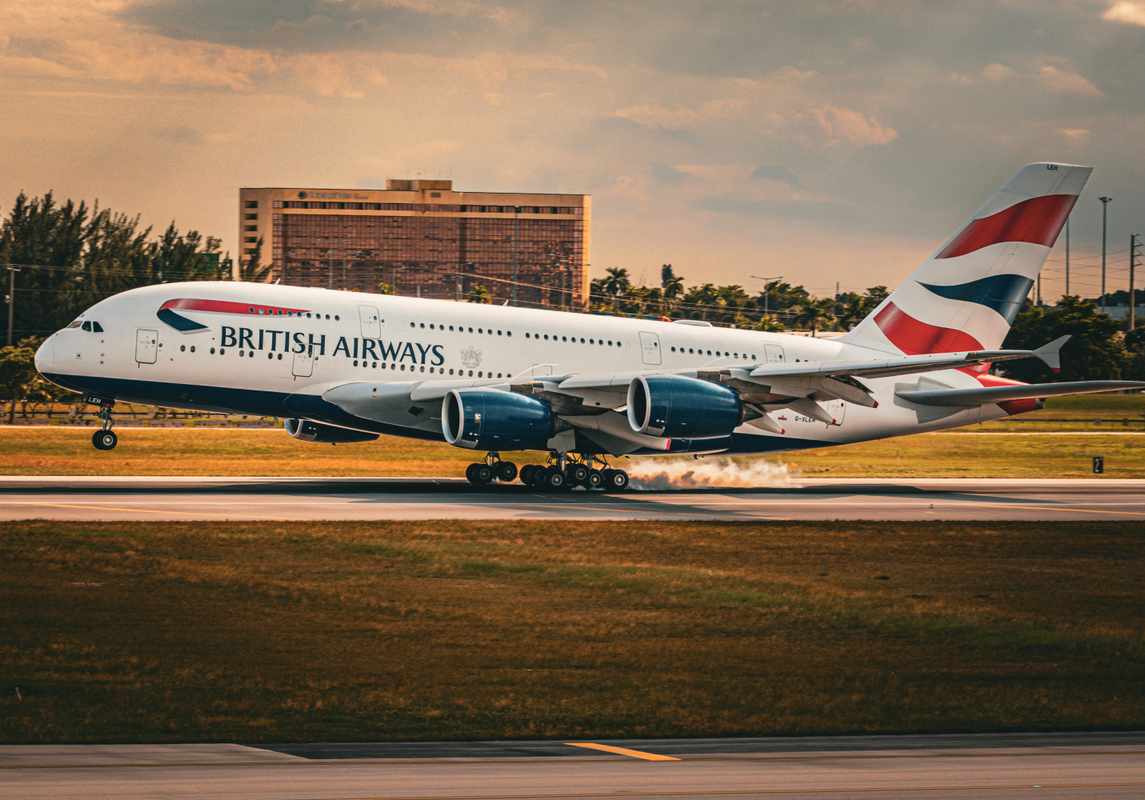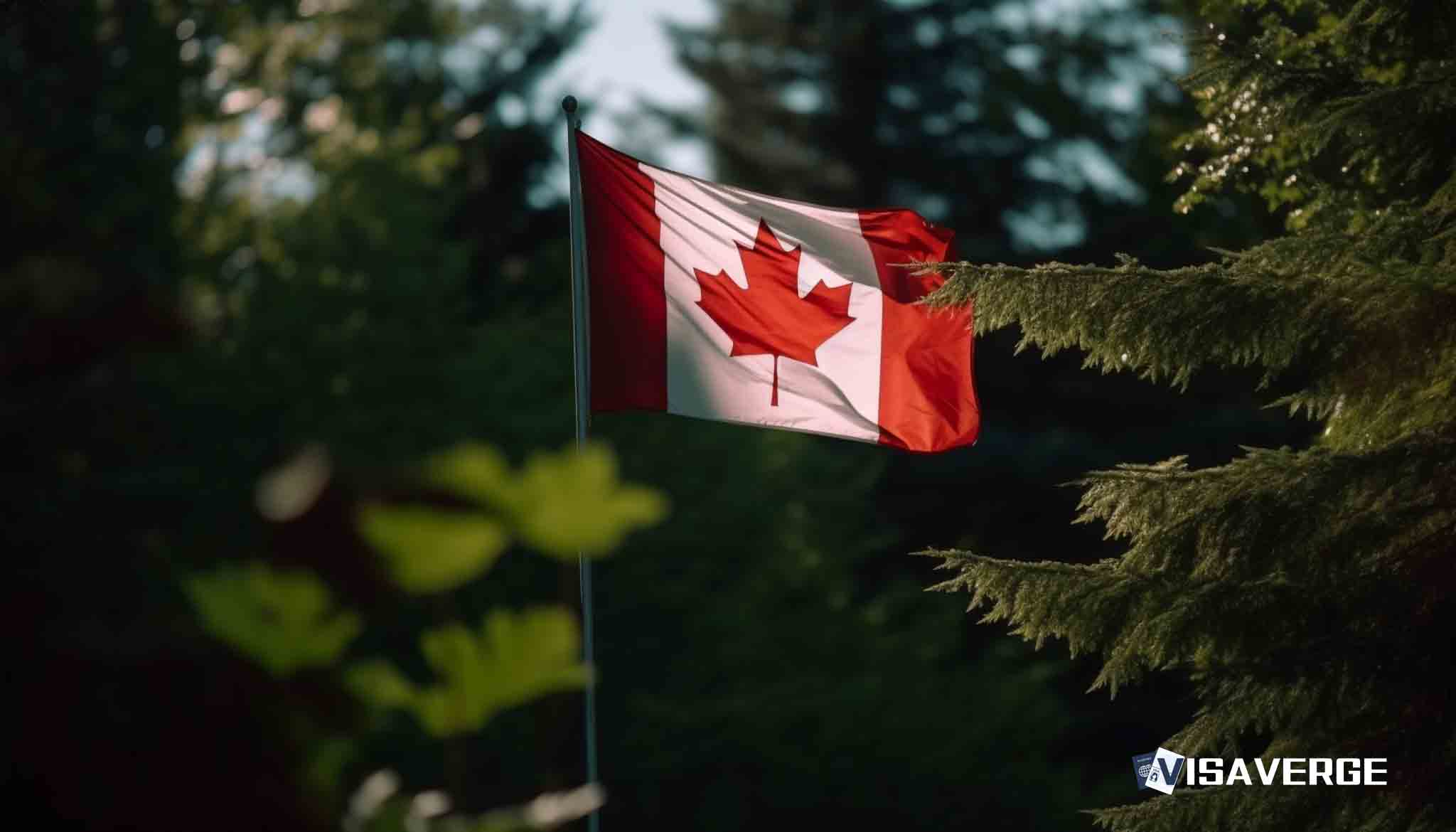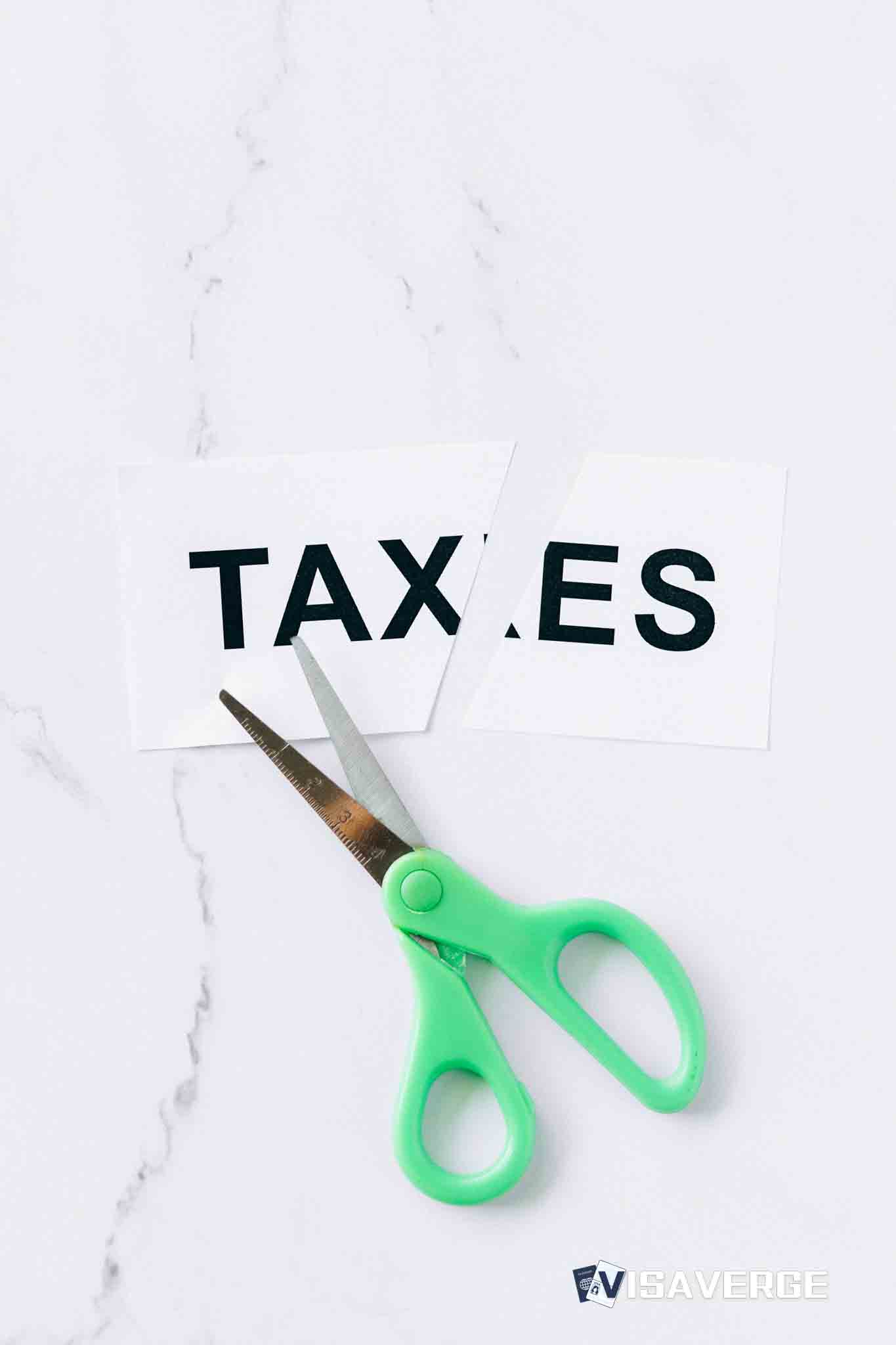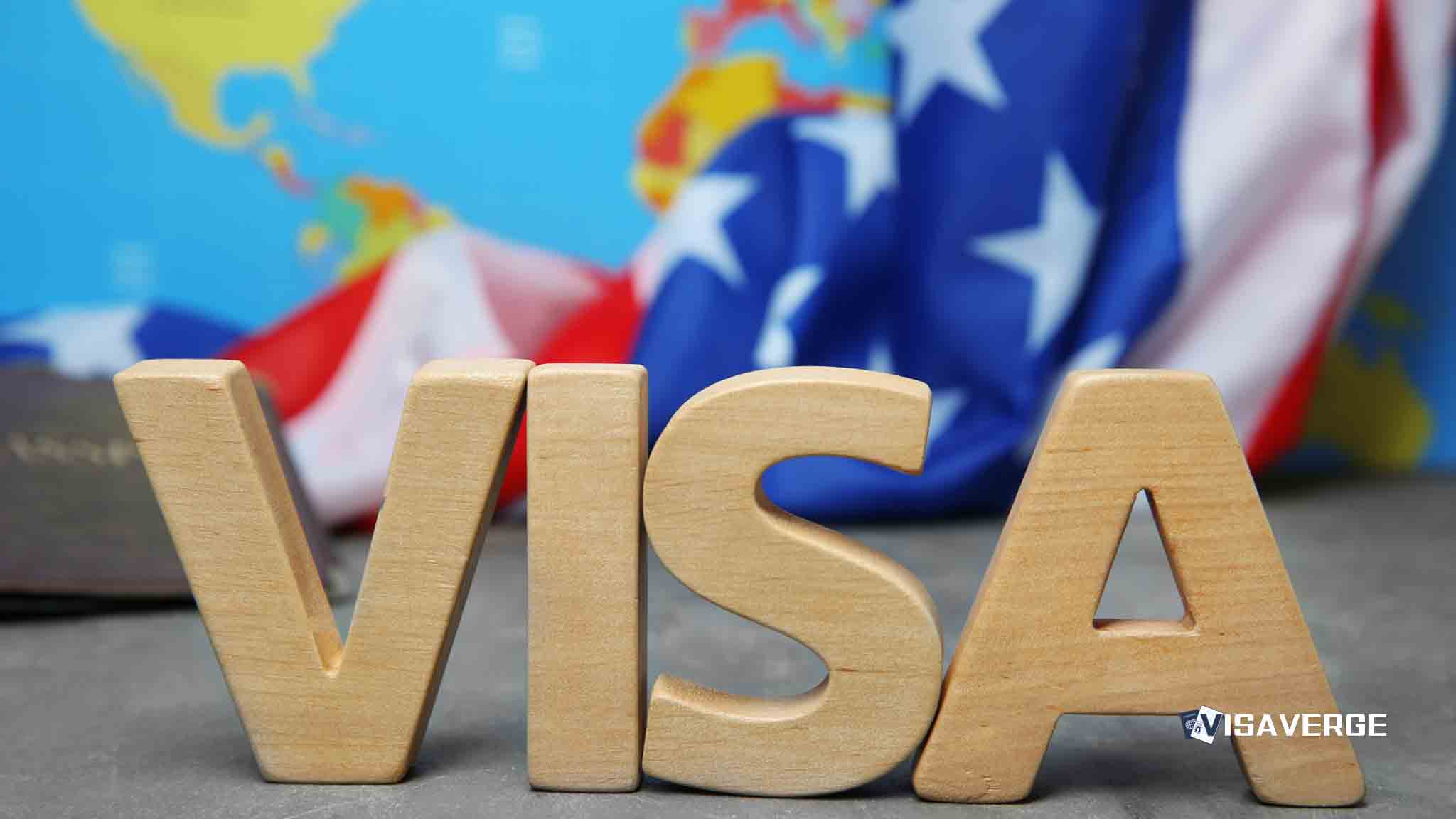Key Takeaways
• F-1 visa interview focuses on your university choice and post-graduation plans to prove genuine student intent.
• Prepare detailed knowledge of university ranking, program, location, and financial documents to succeed.
• Show strong ties to home country and clear career plans to pass the 2025 visa interview.
Applying for a student visa to the United States 🇺🇸 is a major step for anyone planning to study abroad. The F-1 visa interview is a critical part of this process, and your answers—especially about your university choice and post-graduation plans—can determine whether you get your visa. This guide will walk you through every step you need to take to prepare for these questions in 2025, so you can approach your interview with confidence and clarity.
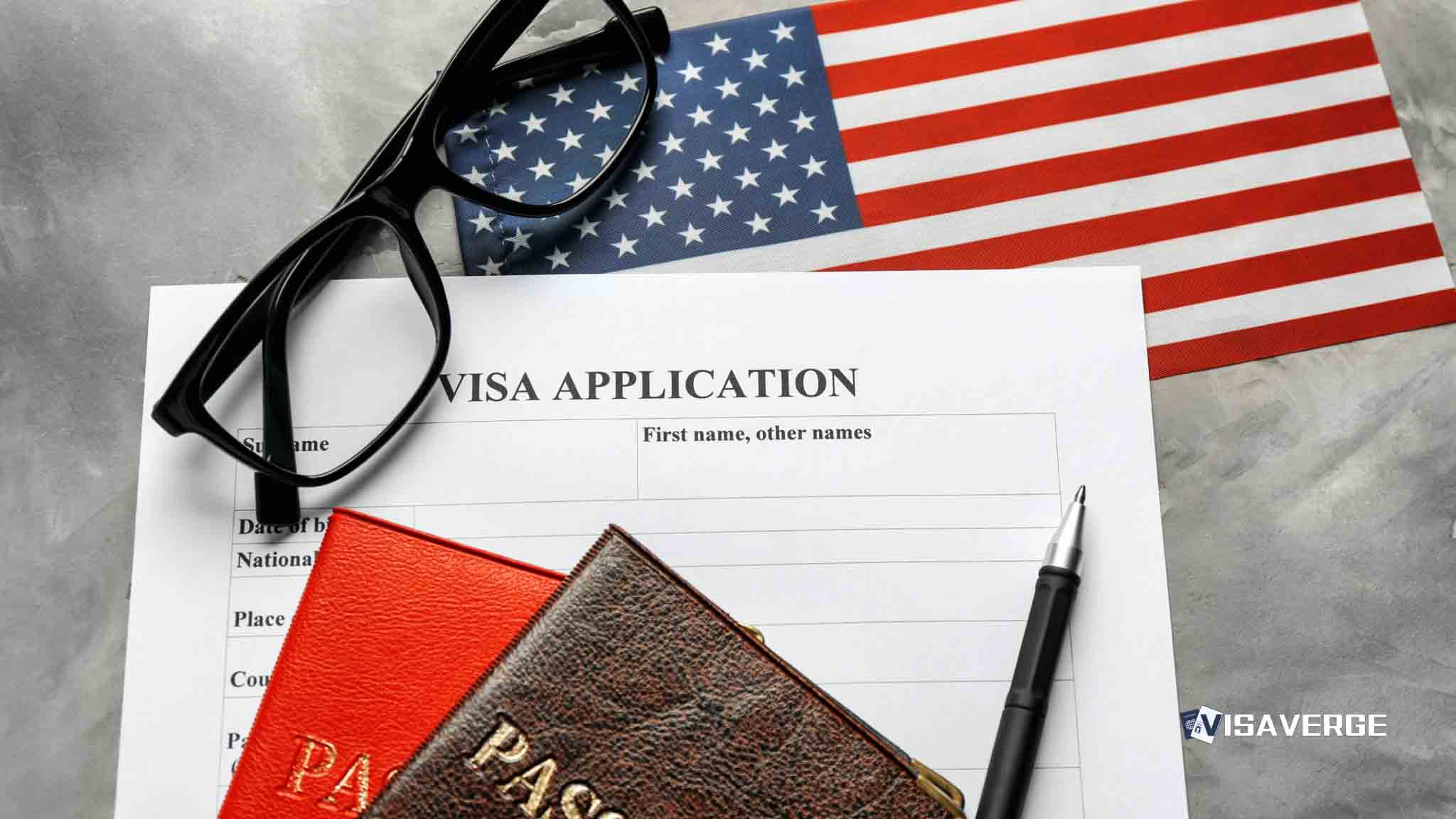
Introduction: Why University Choice and Post-Graduation Plans Matter
When you attend your F-1 visa interview, the visa officer wants to know if you are a genuine student, if you have chosen your university for good reasons, and if you plan to follow the rules of your visa. Questions about your university choice and what you plan to do after graduation help the officer decide if you really intend to study and return home, or if you might overstay your visa.
Your answers must show:
– You have carefully chosen your university and program.
– You have a clear plan for your studies and your future.
– You have strong reasons to return to your home country after graduation.
This guide will give you step-by-step instructions to prepare for these questions, highlight common mistakes, and provide a checklist to make sure you are ready.
Step 1: Research Your University and Program Thoroughly
Estimated Time: 2–3 days
Before your interview, you need to know your chosen university inside and out. Visa officers expect you to have detailed knowledge about where you will study and why you picked that school.
What to Do:
- Learn about your university’s ranking and reputation.
- Find out how your university is ranked in your field.
- Look for awards, achievements, or special programs.
- Identify unique features.
- Does your university have famous professors, special research labs, or strong industry connections?
- Are there any alumni who have achieved success in your field?
- Understand the location.
- Know the city or town where your university is located.
- Learn a few facts about the area, such as its history, climate, or nearby industries.
Example:
If you are going to the University of Dayton, you could mention, “Dayton, Ohio is known as the ‘Birthplace of Aviation’ and has a strong engineering industry, which matches my interest in aerospace engineering.”
Why This Matters:
Visa officers want to see that you have made a thoughtful university choice, not just picked a school at random. This shows you are serious about your studies.
Common Pitfalls:
- Giving vague answers like “I chose this university because it is good.”
- Not knowing basic facts about your university or its location.
Step 2: Prepare Clear Reasons for Your University Choice
Estimated Time: 1–2 days
You must be able to explain why you chose this university over others. This is one of the most common and important student visa interview questions.
What to Do:
- List all the universities you applied to.
- Be honest about how many and which ones.
- Explain why you picked this one.
- Was it the best fit for your major?
- Did it offer a scholarship or special program?
- Does it have a strong reputation in your field?
Example:
“I applied to five universities and was accepted by three. I chose this university because it has a top-ranked computer science program, and its graduates have a high job placement rate.”
Why This Matters:
Visa officers want to know that you made a careful, informed decision. This helps prove you are a genuine student.
Common Pitfalls:
- Hiding the number of universities you applied to.
- Giving generic answers like “It is a good university.”
Step 3: Know Your Major and Explain Your Choice
Estimated Time: 1 day
You should be ready to talk about your major—what you will study—and why you chose it.
What to Do:
- Connect your major to your past education.
- Explain how your previous studies led you to this field.
- Show how your major fits your future goals.
- Talk about the skills you want to learn and how they will help you in your career.
Example:
“I studied biology in high school and became interested in genetics. This university offers advanced genetics courses and research opportunities, which will help me become a medical researcher in my home country.”
Why This Matters:
Visa officers want to see that your university choice and major make sense for your background and goals.
Common Pitfalls:
- Not knowing details about your major or program.
- Failing to connect your studies to your future plans.
Step 4: Develop a Clear Post-Graduation Plan
Estimated Time: 2 days
Questions about your plans after graduation are some of the most important in the F-1 visa interview. Officers want to know if you plan to return home or stay in the United States 🇺🇸.
What to Do:
- Describe your career goals.
- Explain what job you want after graduation.
- Mention any job offers, family businesses, or opportunities in your home country.
- Show strong ties to your home country.
- Talk about family, property, or commitments that will bring you back.
- If you plan to use Optional Practical Training (OPT):
- Say you know about OPT and will follow all rules.
- Explain how OPT fits into your long-term plans.
Example:
“After finishing my master’s degree, I plan to return to my home country to work in my family’s construction business. My new skills will help us expand our company.”
Why This Matters:
The F-1 visa is a non-immigrant visa. You must show you plan to leave the United States 🇺🇸 after your studies, unless you follow legal paths like OPT.
Common Pitfalls:
- Saying you want to stay in the United States 🇺🇸 without a clear legal plan.
- Not having a strong reason to return home.
Step 5: Prepare Financial Documentation
Estimated Time: 1–2 days
Visa officers will ask how you will pay for your education and living expenses. You must be ready to show proof.
What to Do:
- Gather documents showing your funding sources.
- Bank statements, scholarship letters, loan documents, or sponsor letters.
- Know the total cost of your studies.
- Tuition, housing, food, insurance, and other expenses.
- Be ready to explain your funding.
- Who is paying? How much money do you have? Is it enough for your entire program?
Example:
“My parents are sponsoring me, and I have a scholarship that covers half my tuition. Here are our bank statements and the scholarship letter.”
Why This Matters:
Visa officers must be sure you can afford your studies and will not work illegally.
Common Pitfalls:
- Not having enough proof of funds.
- Giving unclear or incomplete answers about your finances.
Step 6: Practice Answering Questions Confidently and Truthfully
Estimated Time: 1–2 days
Practicing your answers helps you speak clearly and confidently during the interview.
What to Do:
- Practice with a friend, family member, or in front of a mirror.
- Avoid memorizing answers word-for-word.
- Speak naturally and honestly.
- Prepare for follow-up questions.
- Be ready to explain or give more details if the officer asks.
Example:
If asked, “Why did you choose this university?” you might answer, “I chose this university because it offers a unique program in data science, and its graduates are hired by top companies in my country.”
Why This Matters:
Visa officers can tell if you are giving memorized or dishonest answers. Being natural and truthful builds trust.
Common Pitfalls:
- Sounding rehearsed or robotic.
- Giving answers that don’t match your documents.
Step 7: Prepare for Backup Questions
Estimated Time: 1 day
Sometimes, things don’t go as planned. The officer may ask what you will do if you are not accepted into your program or if your plans change.
What to Do:
- Have a backup plan.
- Will you apply to another university?
- Will you improve your qualifications and try again?
- Be honest about your options.
Example:
“If I am not accepted, I will apply to other universities or take more courses in my home country to strengthen my application.”
Why This Matters:
Having a backup plan shows you are realistic and prepared.
Common Pitfalls:
- Saying you have no other options.
- Appearing desperate to stay in the United States 🇺🇸 at any cost.
Troubleshooting: What to Do If You Get a Difficult Question
- Stay calm. Take a deep breath before answering.
- Ask for clarification. If you don’t understand, politely ask the officer to repeat or explain the question.
- Be honest. If you don’t know the answer, say so and explain how you will find out.
- Stick to the facts. Don’t guess or make up information.
Checklist Summary: Are You Ready for Your F-1 Visa Interview?
Use this checklist to make sure you are fully prepared:
- [ ] I can explain why I chose my university and program.
- [ ] I know details about my university’s ranking, faculty, and location.
- [ ] I can list all the universities I applied to and why I picked this one.
- [ ] I have a clear plan for my studies and future career.
- [ ] I can show strong ties to my home country.
- [ ] I have all my financial documents ready.
- [ ] I have practiced answering common and difficult questions.
- [ ] I have a backup plan if things don’t go as expected.
Common Pitfalls to Avoid
- Giving vague or generic answers.
- Not knowing basic facts about your university or program.
- Failing to show strong ties to your home country.
- Not having enough financial proof.
- Sounding rehearsed or dishonest.
- Ignoring backup plans.
Additional Resources
- U.S. Department of State – Student Visa Information: Official Student Visa Page
- Form DS-160 (Online Nonimmigrant Visa Application): DS-160 Form
- University International Student Offices: Contact your university’s office for help with visa questions.
- Trusted immigration consultants: Seek advice from professionals if you have special circumstances.
Latest Developments and Policy Context (June 2025)
As of June 2025, there have been no major changes to the F-1 visa interview process or the types of questions asked about university choice and post-graduation plans. The U.S. Department of State continues to focus on making sure students are genuine, financially prepared, and likely to return home after their studies. According to analysis by VisaVerge.com, being well-prepared with specific, honest answers is more important than ever.
Final Takeaways and Next Steps
Preparing for your F-1 visa interview is about more than just memorizing answers. It’s about showing you are a serious student with a clear plan, strong reasons for your university choice, and a commitment to following the rules. Take the time to research, practice, and gather your documents. Use the checklist above to make sure you are ready.
If you need more information, visit the U.S. Department of State’s official student visa page for the latest updates and requirements.
By following these steps, you’ll be well-prepared to answer any question about your university choice or post-graduation plans—and take a big step toward achieving your dream of studying in the United States 🇺🇸.
Learn Today
F-1 visa → A U.S. non-immigrant student visa allowing academic study at approved institutions.
Optional Practical Training (OPT) → Temporary work permission after study to gain practical experience related to your major.
Visa officer → U.S. government official conducting interviews to assess visa applicants’ eligibility and intentions.
Financial documentation → Proof like bank statements or scholarship letters showing you can afford U.S. education costs.
Backup plan → Alternative options if your original study plan or university acceptance changes or fails.
This Article in a Nutshell
The F-1 visa interview demands confident, clear answers about university choices and post-graduation plans. Thorough research and honest, practiced responses prove genuine intent to study and return home. Prepare financial documents, know your major, and develop backup plans to ensure a successful 2025 visa interview experience.
— By VisaVerge.com


